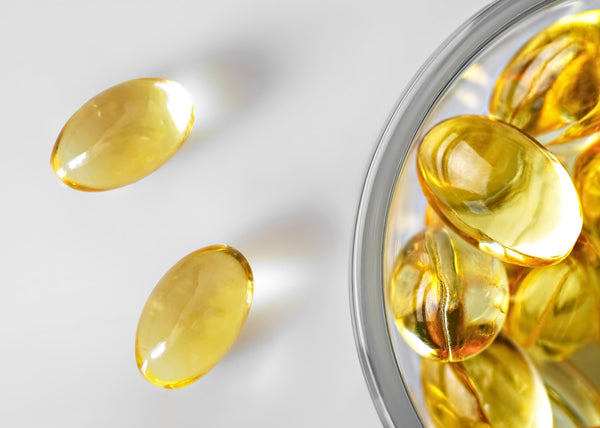Understanding Menopause and Its Transition
Menopause is a natural biological process that marks the end of a woman's reproductive years. It is a time of significant physical and hormonal changes in the body. During this transition, women experience a variety of symptoms and effects that can be uncomfortable and disruptive to their daily lives.
Menopause typically occurs in women between the ages of 45 and 55, although the exact timing can vary. The transition into menopause, known as perimenopause, can last for several years and is characterized by irregular menstrual cycles and fluctuating hormone levels. This period can be challenging for many women as they navigate the physical and emotional changes that come with this phase of life.
The Biological Process of Menopause
Menopause occurs when a woman's ovaries stop producing eggs, and her menstrual cycle ceases. This is due to a decrease in the production of estrogen and progesterone hormones. The decline in these hormones leads to a range of physical and emotional changes. Estrogen, in particular, plays a crucial role in regulating the menstrual cycle and supporting bone health.
Symptoms and Effects of Menopause
Common symptoms of menopause include hot flashes, night sweats, mood swings, sleep disturbances, vaginal dryness, and decreased libido. These symptoms can vary in severity and duration from woman to woman. Additionally, menopause increases the risk of developing osteoporosis and cardiovascular diseases.
Women need to seek support and guidance from healthcare providers to manage their symptoms effectively. Hormone replacement therapy and lifestyle modifications, such as regular exercise and stress management techniques, can help alleviate the discomfort associated with menopause.
The Role of Diet in Menopause Transition
Diet plays a crucial role in helping women navigate the challenges of menopause. A balanced menopause diet includes a combination of whole grains, proteins, micronutrients, and antioxidants to form an ideal diet for menopause.
The Importance of a Balanced Diet
Diet for menopause should include a variety of fruits, vegetables, whole grains, lean proteins, and healthy fats. This ensures that women receive essential nutrients to support their changing bodies.
Nutrients Essential for Menopause Transition
Foods to manage menopause should be rich in certain nutrients that are particularly beneficial during menopause.
Calcium and vitamin D are crucial for maintaining bone health and reducing the risk of osteoporosis. Bioactive supplements like glucosamine, chondroitin sulfate, and MSM ideally improve bone strength and mobility.
Omega-3 fatty acids have anti-inflammatory properties and can help alleviate joint pain and stiffness.
B vitamins, such as folate and B12, support energy production and mental well-being.
Moreover, incorporating phytoestrogen-rich foods like flaxseeds, soybeans, and lentils can help balance hormone levels naturally. Phytoestrogens mimic the effects of estrogen in the body and may help reduce menopausal symptoms like hot flashes and mood swings.
Additionally, incorporating probiotic-rich foods like yogurt, kefir, and sauerkraut can help maintain gut health, which is linked to overall well-being.
Fiber-rich foods such as legumes, nuts, and seeds can aid in digestion and support heart health, which is particularly important during menopause when the risk of heart disease may increase.
The Impact of Hydration
Staying hydrated is essential during menopause. Hormonal changes can lead to increased water loss through sweating and more frequent urination. Adequate hydration helps prevent dryness and minimizes the discomfort of hot flashes.
In addition to water, choose herbal teas like chamomile or peppermint into your daily routine, that can provide hydration while offering calming and cooling effects for menopausal symptoms.
Avoiding excessive caffeine and alcohol intake is also important, as they can contribute to dehydration and exacerbate hot flashes and night sweats.
Foods to Eat During Menopause
Fruits and Vegetables for Menopause
Increasing the consumption of fruits and vegetables packed with vitamins, minerals, and antioxidants is crucial during menopause.
Berries, such as blueberries and strawberries, are excellent choices due to their high levels of antioxidants that combat oxidative stress in the body.
Leafy greens like spinach and kale are rich in calcium and vitamin K, which are essential for bone health during menopause.
Additionally, cruciferous vegetables such as broccoli and Brussels sprouts contain compounds that can help balance estrogen levels in the body.
Adding a variety of colorful fruits and vegetables to your menopause diet not only ensures a diverse range of nutrients but also supports gut health, which is crucial for proper digestion and immune function during menopause.
Protein Sources Beneficial During Menopause
Protein is essential for maintaining muscle mass and supporting hormonal balance during menopause.
Include lean proteins such as skinless poultry, fatty fish like salmon, tofu, and legumes like lentils and chickpeas, in your diet. These foods provide amino acids that aid in tissue repair and hormone production. For vegetarians, plant protein alternatives are also ideal to consume.
Omega-3 fatty acids found in fish can also help reduce inflammation and support heart health, particularly during menopause when the risk of cardiovascular issues may increase. Ideally, triple-strength omega supplements provide advanced anti-inflammatory benefits.
Whole Grains and Menopause
Whole grains should be a staple in the menopausal diet. They are rich in fiber, which helps regulate digestion and prevent constipation.
Whole grains like quinoa, brown rice, and oats also provide complex carbohydrates that supply a steady release of energy, helping to combat fatigue and support cognitive function.
The B vitamins present in whole grains convert food into energy and support the nervous system, which can be beneficial for managing stress and promoting mental clarity during menopause.
Furthermore, the fiber content in whole grains supports satiety, aids in weight management, and reduces the risk of chronic diseases such as diabetes and heart conditions, which can become more prevalent post-menopause.
Foods to Avoid During Menopause
The Impact of Processed Foods
Processed foods, such as fast food, packaged snacks, and sugary desserts, should be avoided during menopause. These foods are typically high in unhealthy fats, added sugars, and sodium. They can contribute to weight gain, inflammation, and an increased risk of cardiovascular diseases.
Sugar and Menopause Symptoms
Excessive sugar intake can exacerbate menopause symptoms, such as hot flashes and mood swings. It can also lead to weight gain and an increased risk of developing type 2 diabetes. Instead, opt for natural sweeteners like fruit or use moderation when consuming sugary treats.
Instead of reaching for sugary snacks, try satisfying your sweet cravings with nutrient-rich options like Greek yogurt with berries or a small piece of dark chocolate. These alternatives provide a sweet taste without the negative effects of refined sugars.
Effects of Alcohol and Caffeine on Menopause
Alcohol and caffeine can disrupt sleep patterns and exacerbate hot flashes and night sweats. Hence, it is best to limit or avoid these substances during menopause.
Conclusion
Transitioning through menopause can be challenging, but a well-balanced diet can provide natural relief and support overall well-being. By incorporating nutrient-rich foods and avoiding processed foods, women can navigate this phase with greater ease. Additionally, consulting with a healthcare professional or a registered dietitian can provide personalized guidance and ensure an optimal menopause experience.



























 DOWNLOAD NOW
DOWNLOAD NOW
